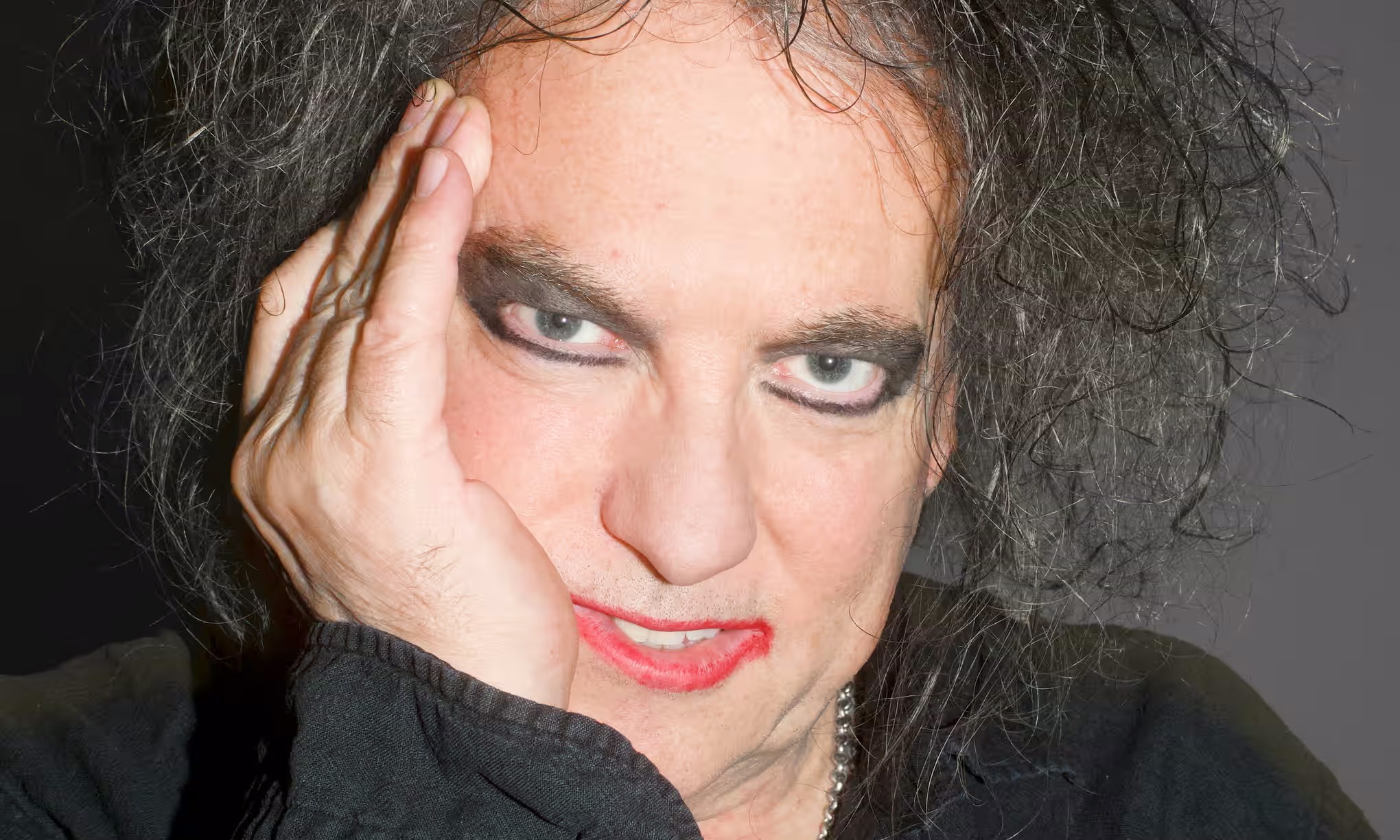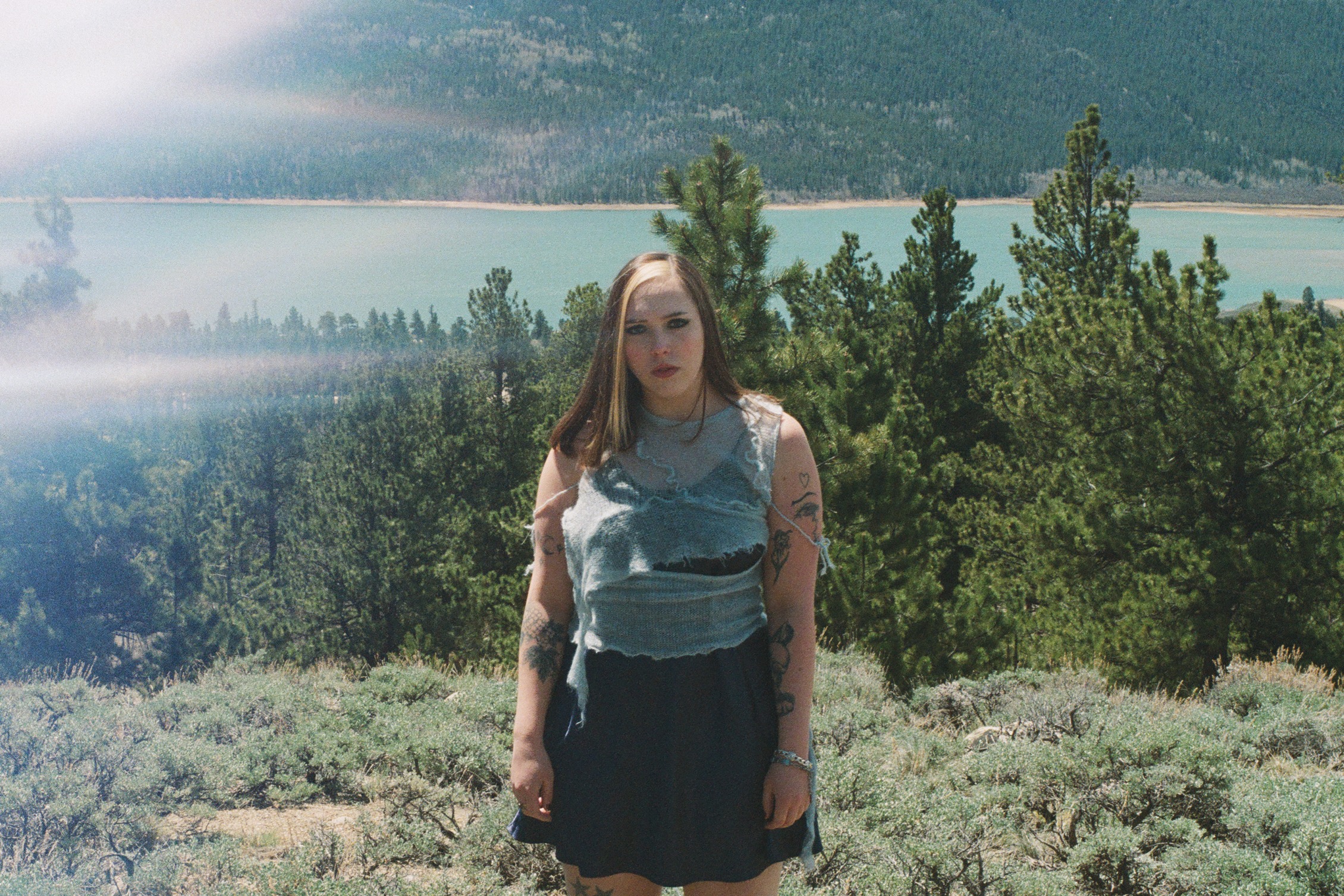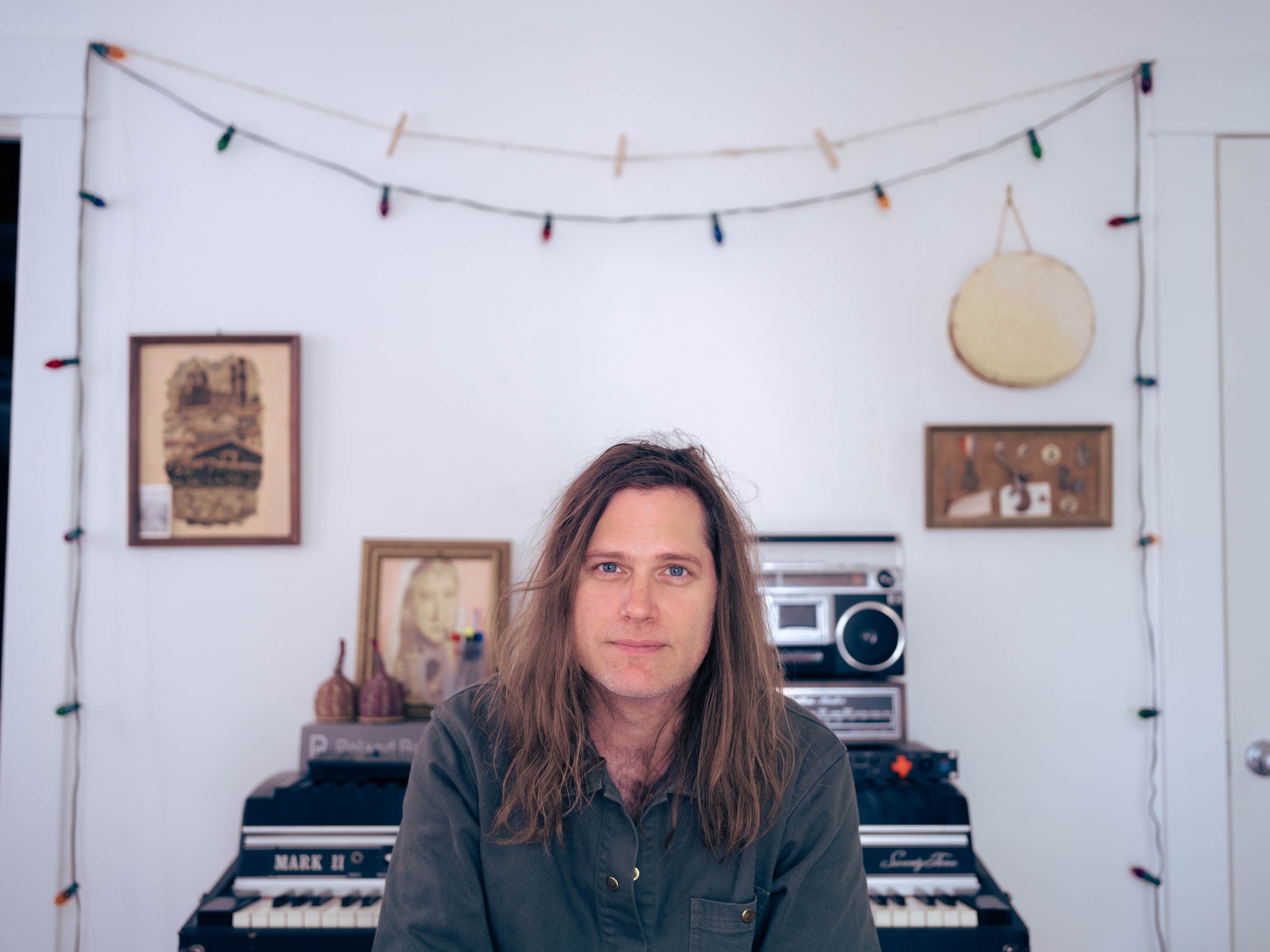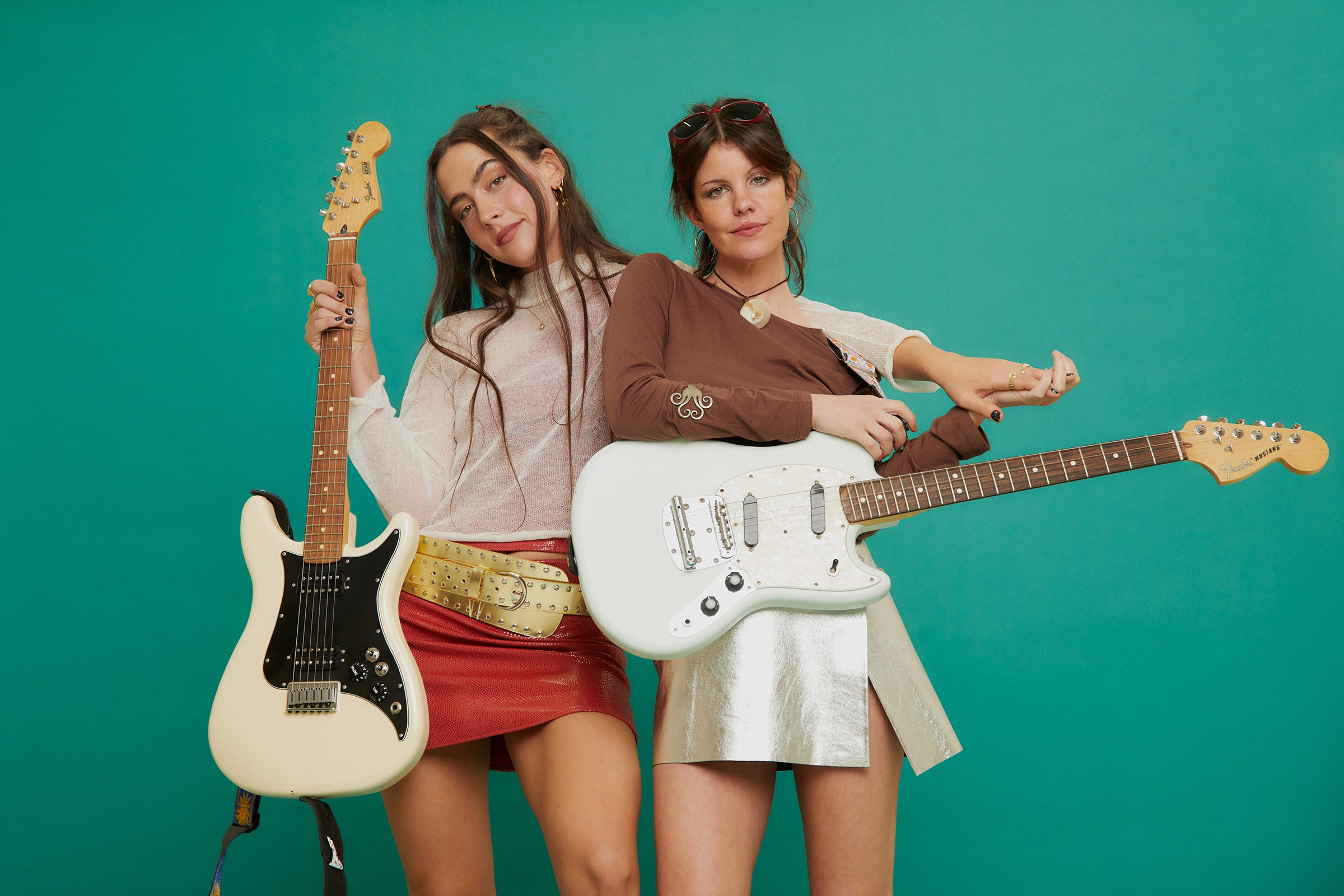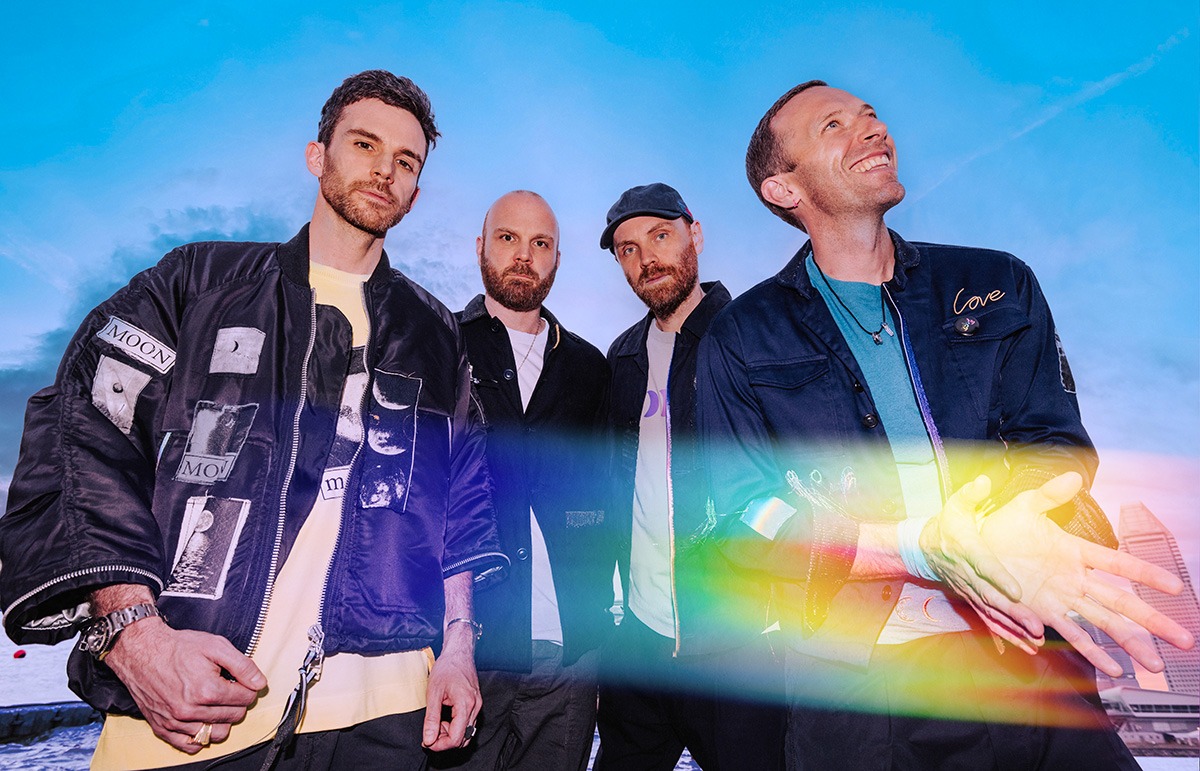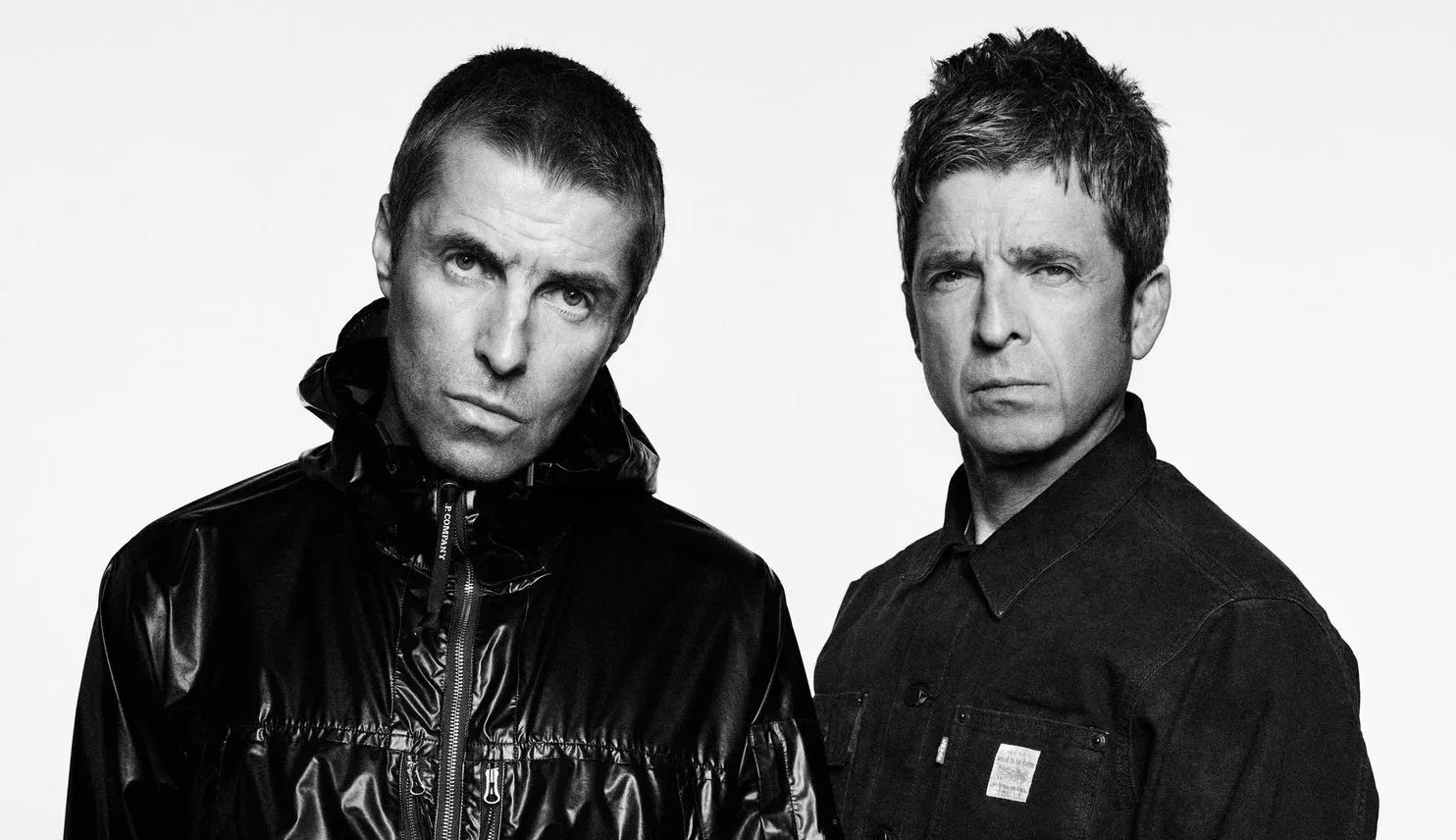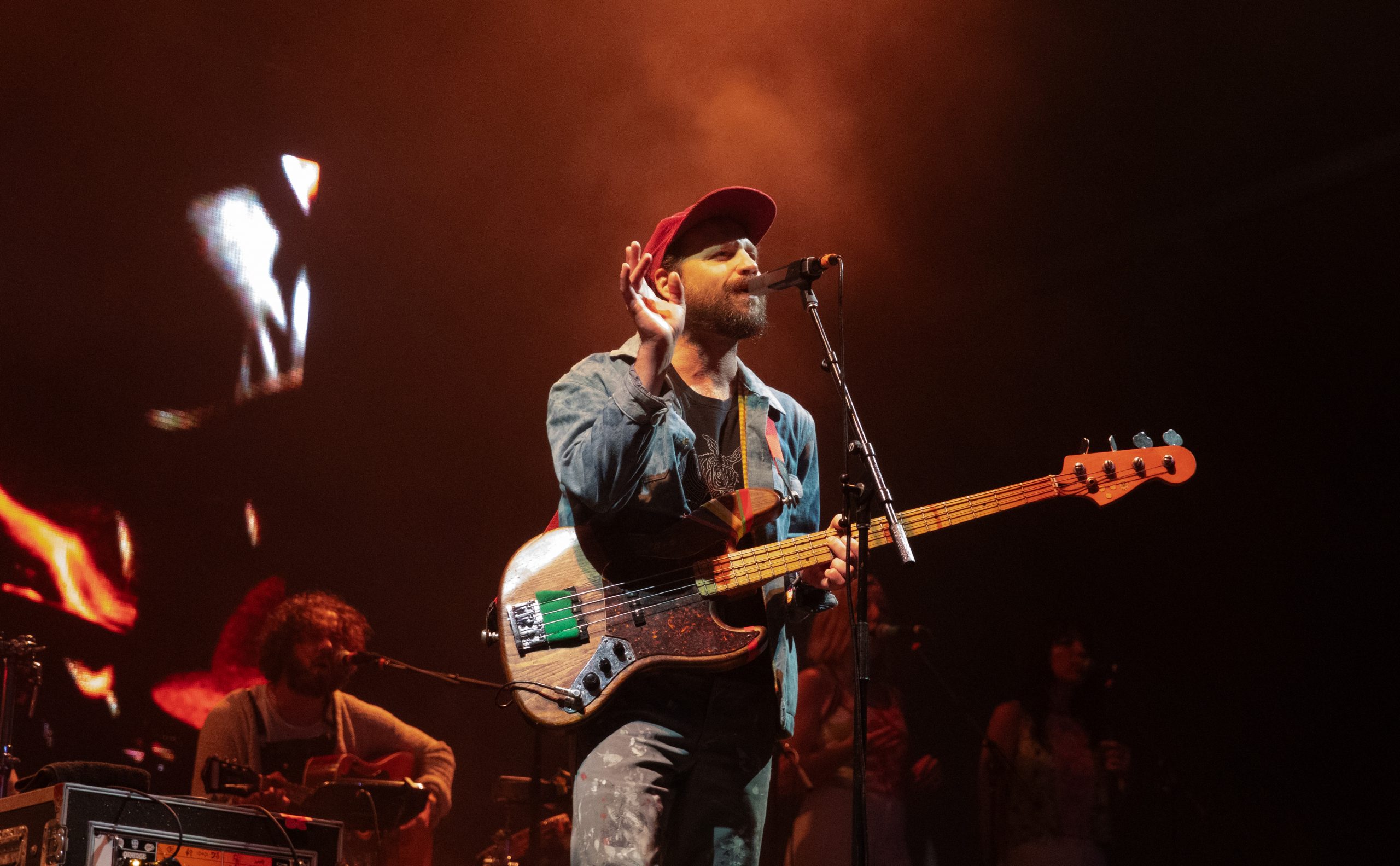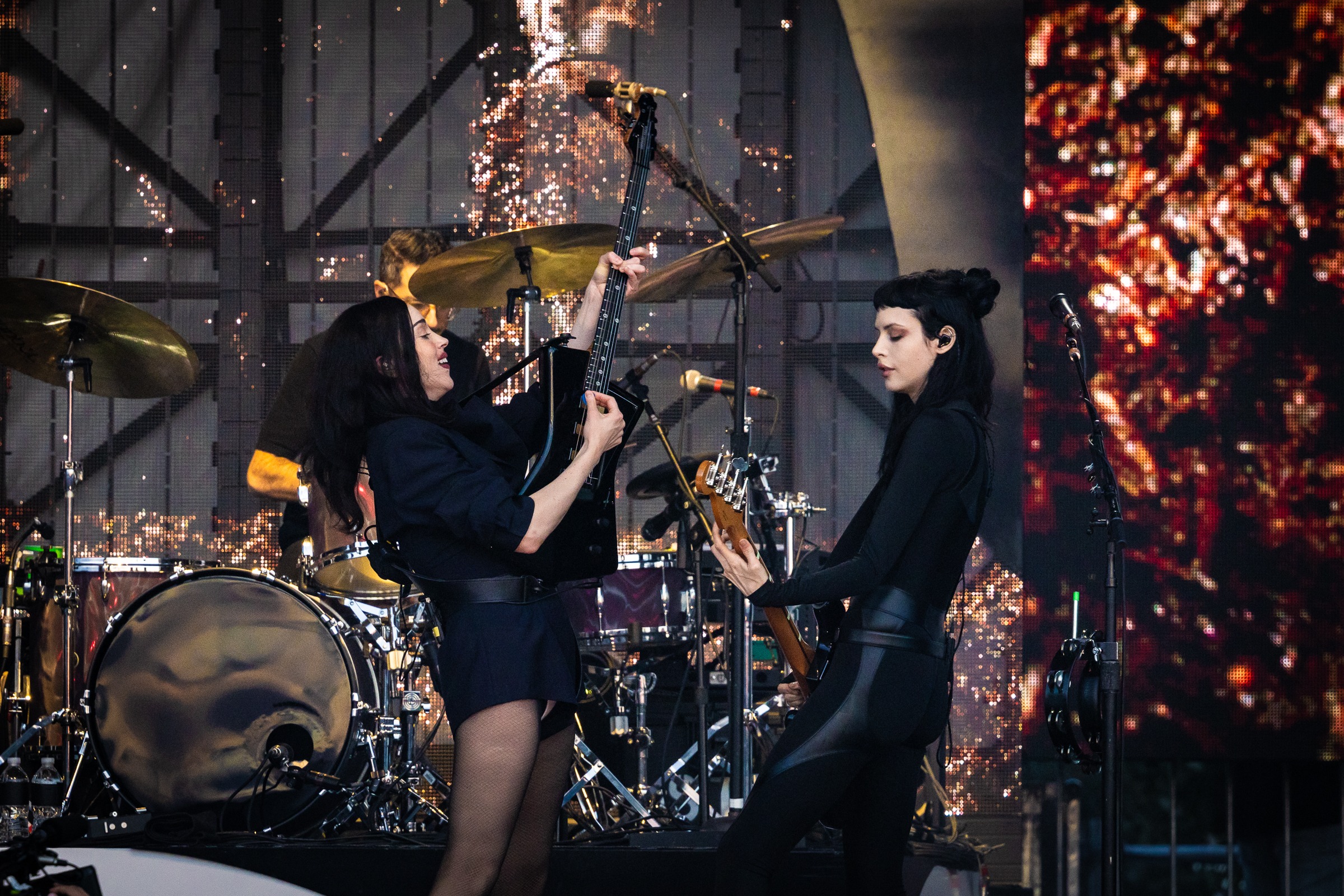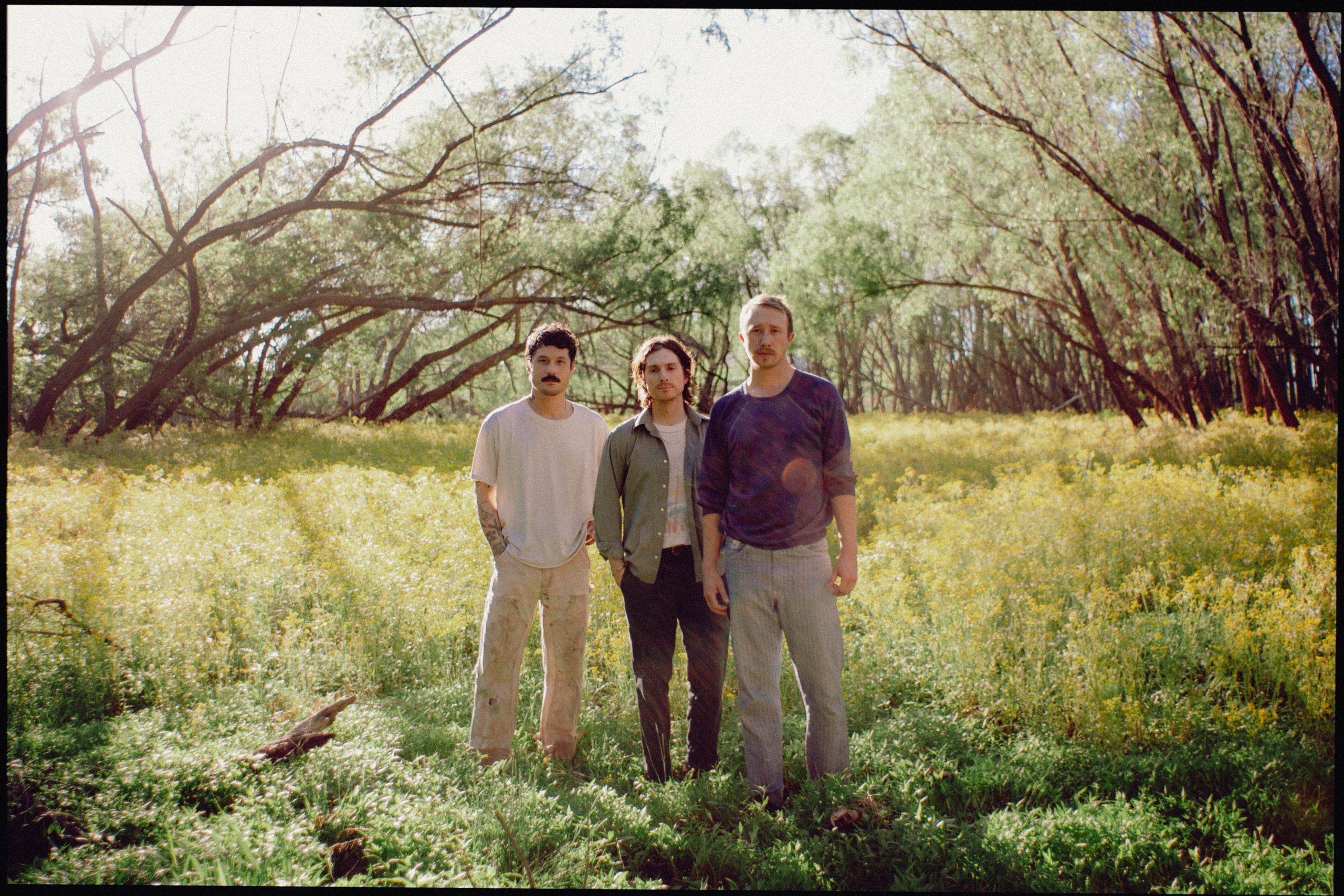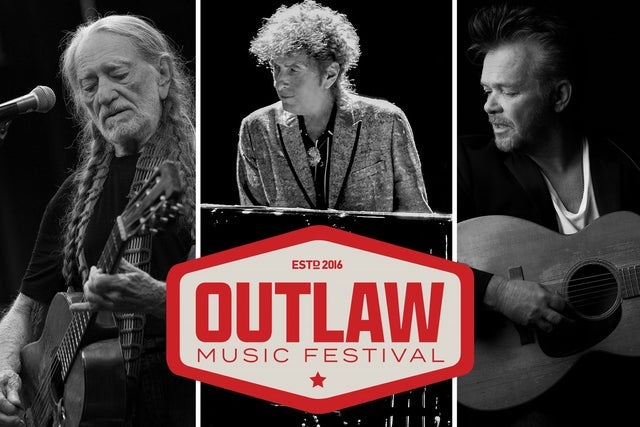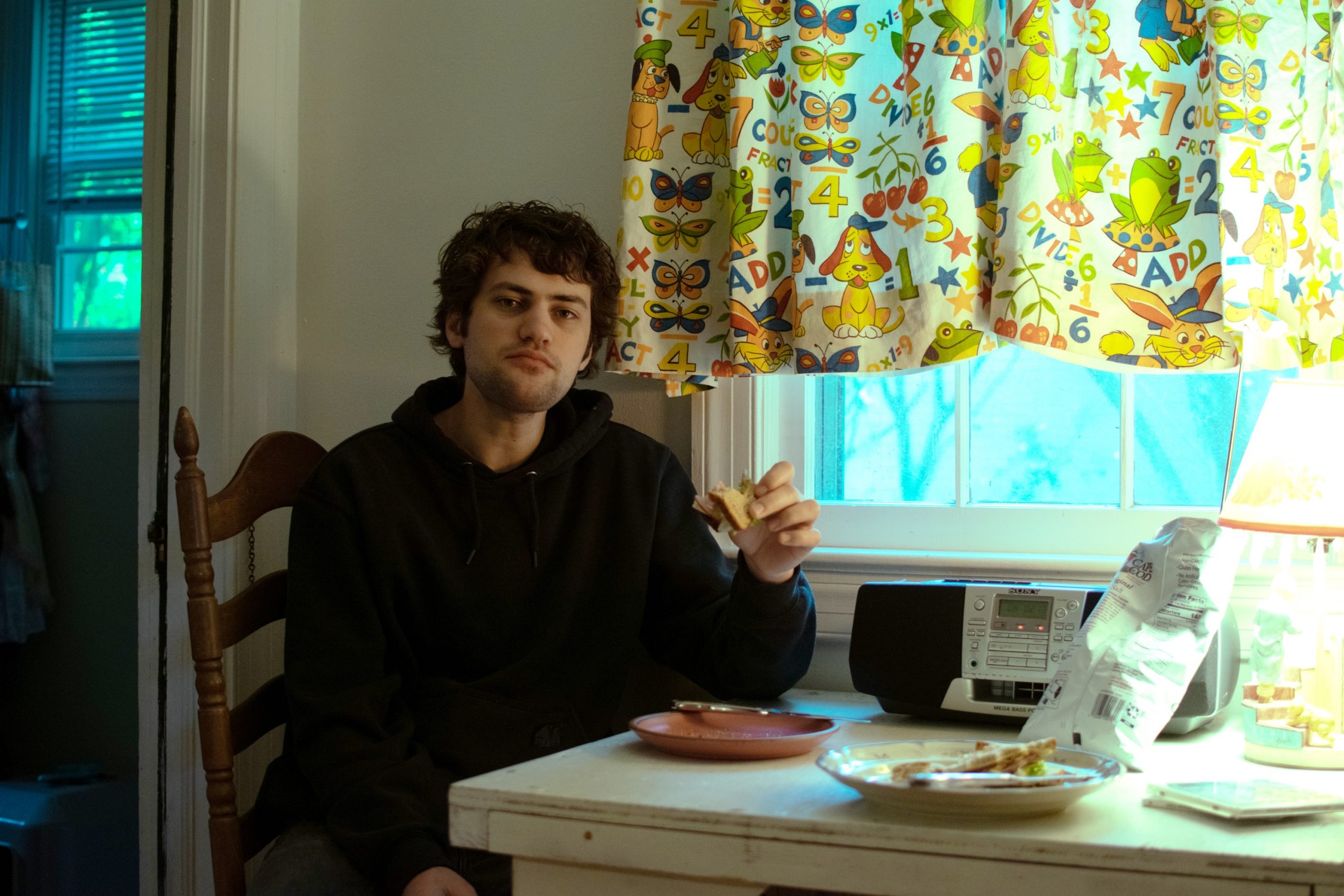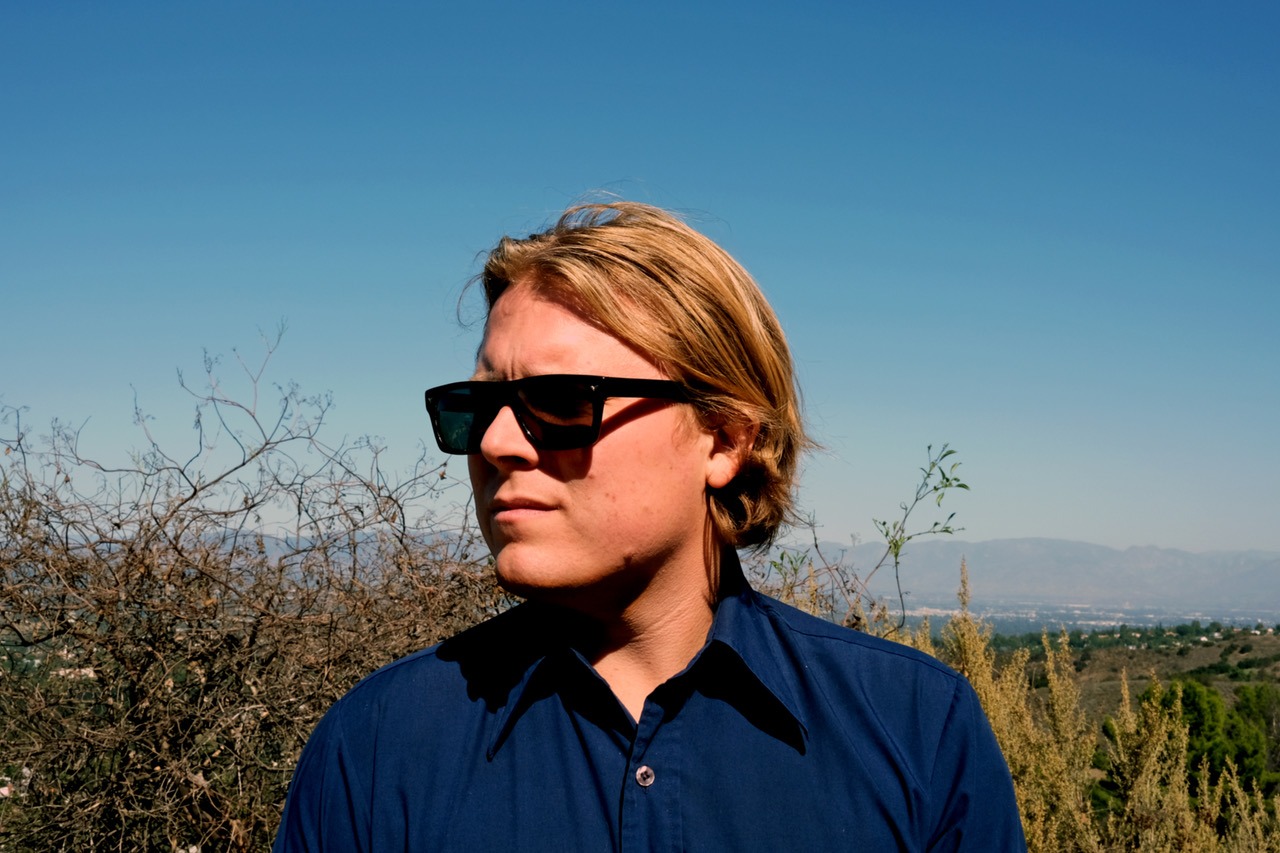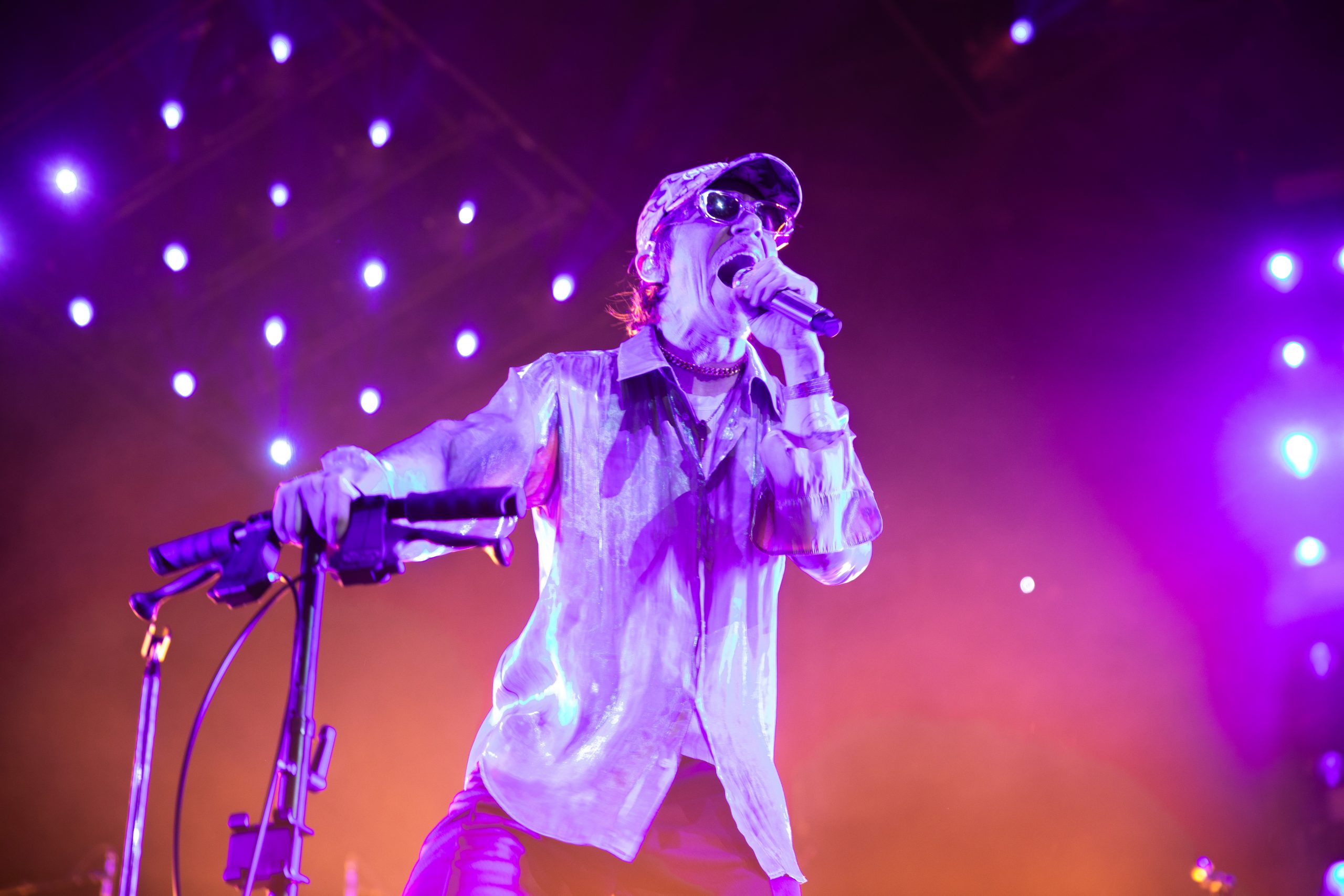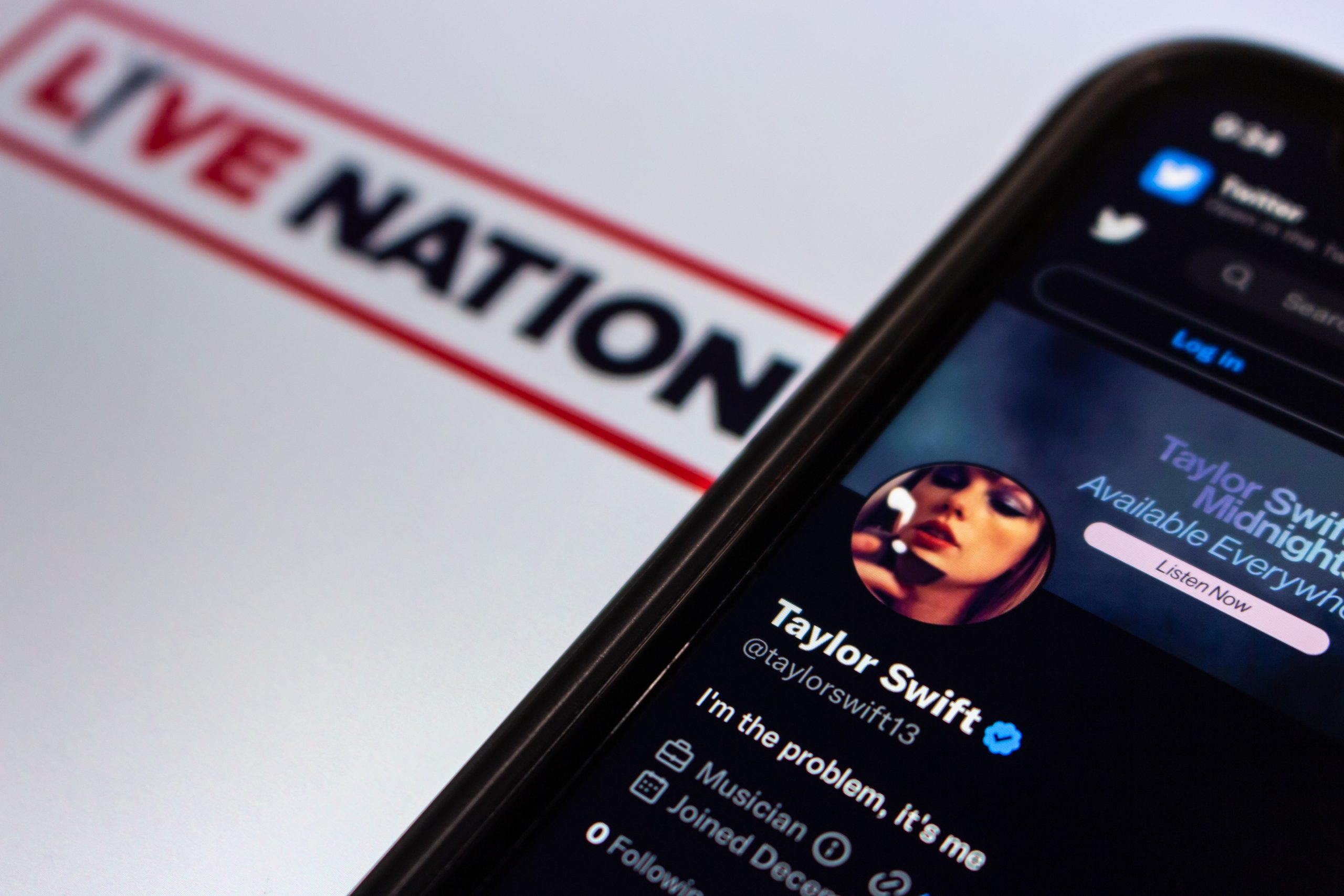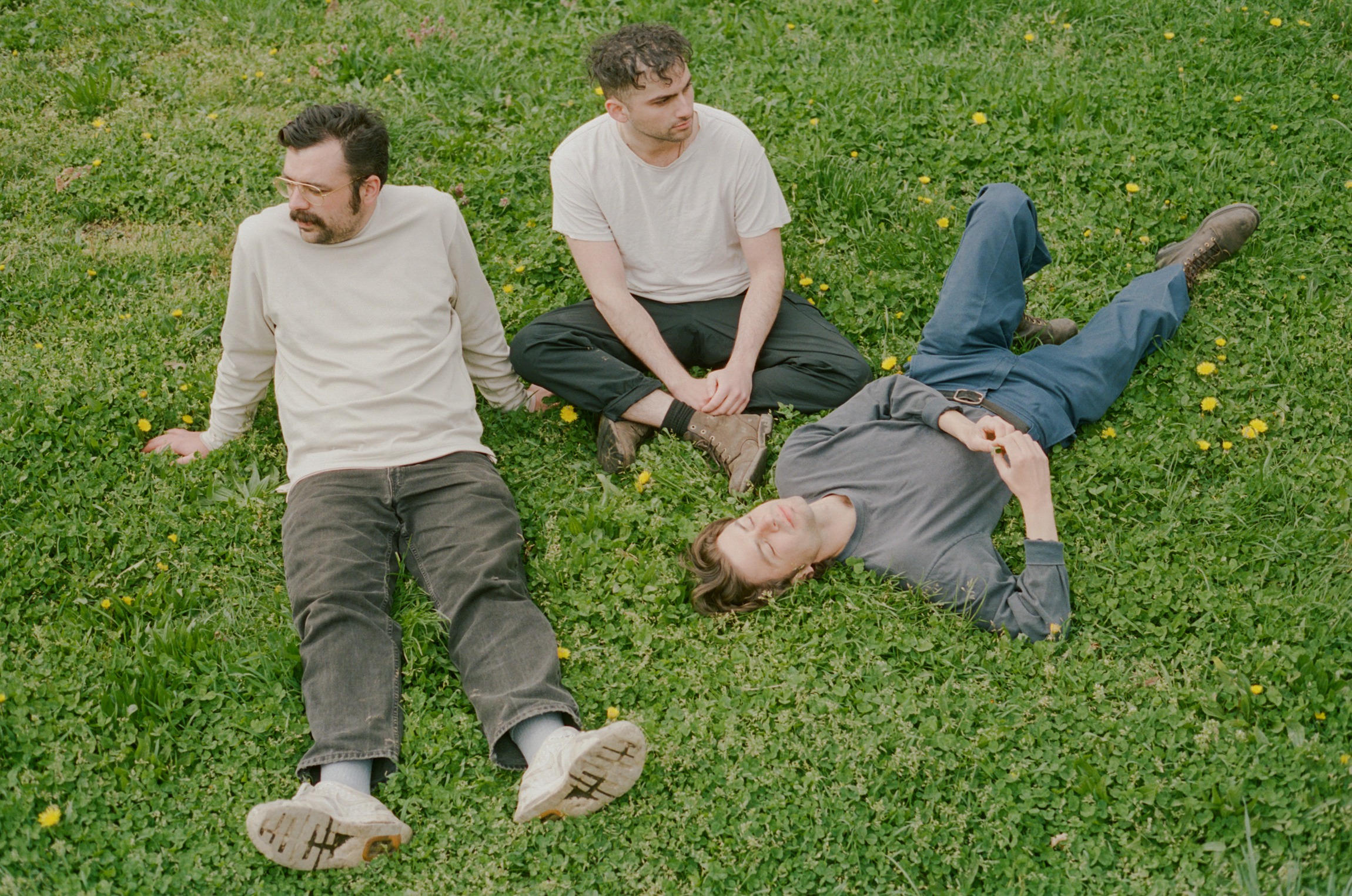Black Duck Build a Vocabulary
The Chicago improvisational experimental rock trio kick off Pitchfork Music Festival this weekend
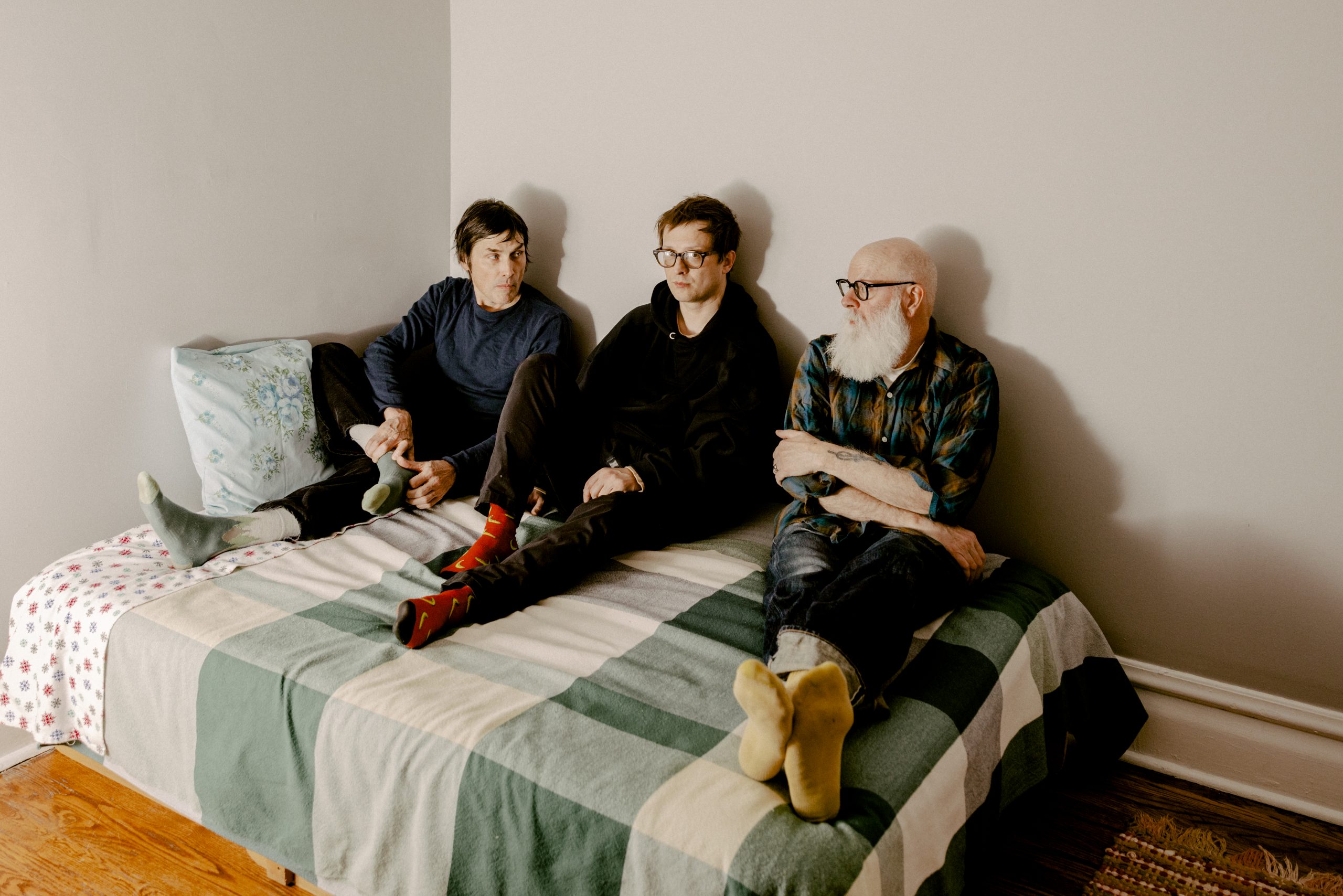
Three Chicago music stalwarts came together in 2016 to play experimental, improvisational live avant-garde rock. They formed Black Duck, an organic journey into creative liberty composed of Bill MacKay, guitar; Douglas McCombs, guitar and bass; and Charles Rumback, drums. And with their debut album out last year, the band is slated to open Pitchfork Music Festival on Friday, July 19 in Chicago.
MacKay, McCombs and Rumback have all performed since moving to Chicago—but never all together until Black Duck. Rumback and McCombs came together for informal jams and when they were looking to bring another person into the mix, MacKay was the only name that came to mind. In an interview with Luckbox, Rumback says it happened informally and weirdly, “especially considering where we’re at in our lives.”
“The informality aspect of it was sort of key for me at the beginning,” McCombs says. “I knew I wanted to do something improvisational, mostly because I don’t play a lot of improvised music. I wanted a group that could slowly develop some kind of vocabulary, without any pressure to make a recording or think about logistical things.”
And that’s exactly what Black Duck has done. Since forming, the band has played about two to four shows a year, including a set at Big Ears Festival in 2018, all before recording and releasing an album. The band’s live sets were improvised, building off certain themes, moods and motifs in the moment. It’s an experience that sounds and looks composed because Black Duck have pinned down their own language—a collective understanding of linguistic and musical structures.
Improvised vocabulary
“Growing up, my dad was really into jazz, so I was always hearing a lot of it, and it did sound like a barrage of craziness. But I grew to love it,” MacKay says. “As individuals, we developed improvisational ideas, and bring them together to find some common ground. We were finding a language together.”
At Roosevelt University, Rumback studied jazz composition, and while he doesn’t consider himself a jazz drummer, his works lean heavily toward avant-garde jazz-rock. For him, it’s fascinating to play music with others, such as McCombs, because it’s always at a different pace.
“It makes for a very spontaneous composition,” Rumback says. “You just move together. Our band has three leaders … and you can truly be yourself.”
Part of the reason McCombs wanted to start the group was to push himself to be a sharper musician, as he’s “pretty uncomfortable improvising.”
“I’m sort of a slow thinker … more ponderous. So doing something like this pushes me to get sharper and develop my own vocabulary that meshes with other people’s vocabulary,” McCombs says.
Self-titled composition
When Black Duck decided it was time to hit the studio and record their first album, they each brought one composed song to the table, and improvised the rest of the album live.
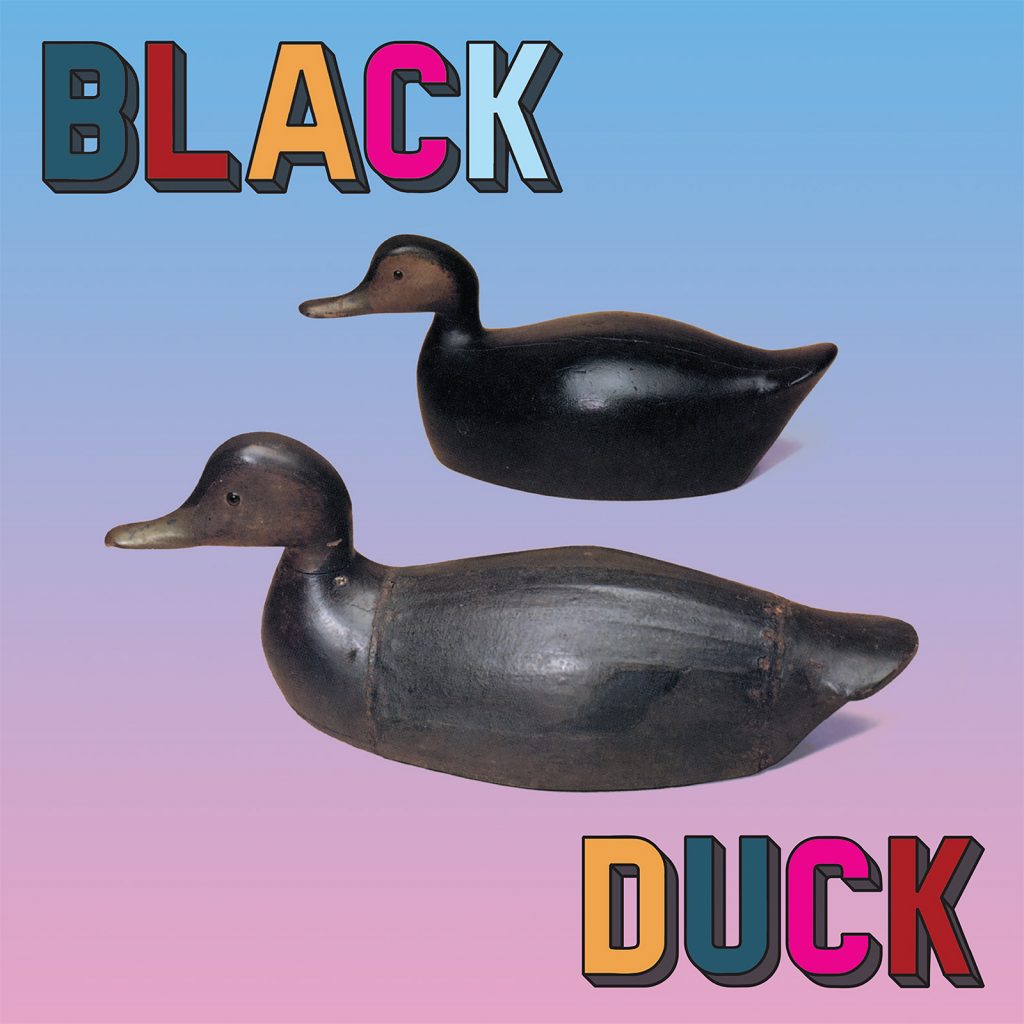
“The way we work is pretty fluid,” Rumback says. “We can move in a lot of different directions because of the nature of the group. It allows things to happen naturally, that otherwise might have been a roadblock if we were more structured.”
The album, released in June 2023, is simultaneously dreamy, and dark and brooding. The collection of instrumental tunes allows an openness for interpretation but leads listeners to moments of clarity through the exploration of sound. For live sets, like their upcoming performance at Pitchfork, the band plays a mixture of composed pieces from the album and transitions into improvised grooves.
“I hope we raise enough energy, that there’s some fire in it, to provoke people’s emotions, feelings and imaginations,” MacKay says.
The band’s openness and creativity allow each performance to take on a life of its own. It brings a special experience for listeners, who go into the show unsure of what they might hear or get out of it and walk away with a moment only they will remember.
“The whole mode of operation is like that [in Chicago],” Rumback says. “I think a band like us can only exist here, like exactly the way we do it anyway.”
Though improvised, a Black Duck set is anything but chaotic. The band has a controlled togetherness and a vision for where each song goes.
“The informality of how it came together and how we started evolving as a group, it’s also reflecting on how our material is now being written collectively—it’s almost like we’re finding it together,” Rumback says. “By not putting a definition on it, it let us connect pretty deeply and kind of in weird, different directions at the same time.”
Hometown show
Black Duck will be taking the stage at Pitchfork for the first time this weekend, but it’s certainly not the trio’s first-time at the festival. McCombs performed at Chicago’s first Pitchfork in 2006 with his post-rock band Tortoise and played again a few years later. He says it’s been an interesting part of his life since it started.
Rumback worked as a drum technician at the first Pitchfork and ended up working the fest for 13 years. Similarly, MacKay has worked at and attended the festival throughout the years.
“Pitchfork, because it’s in Chicago, means a lot for me, because we’re playing for a lot of people we know. There’s the element of a hometown show. It’s a big deal,” MacKay says. “It’s been the fabric of the music scene for me. So, this feels like one of those high times.”
Black Duck’s performance at the festival speaks to their experience with the Chicago music scene. In the early 1980’s, McCombs moved to Chicago and over the course of his time there, he realized there was a real “meat and potatoes” approach to getting down to business and creating.
“That has always been evident in Chicago to me, more so than other places I’ve visited,” McCombs says. “It’s been a big factor in what I’ve done over the years in Chicago.”
MacKay agrees, noting that moving to Chicago in 1998 was the next step in being a musician, and was a flourishing of new creative avenues. In Chicago, he says, there’s a certain openness to people working across genres. For him, it has been tremendously inspiring.
“I get a lot of gratification when I go places and people give you that look like, ‘What’s going on in Chicago now?’” MacKay says. “There is always something brewing. Chicago is like this slow-brewing Renaissance all the time.”
Their influences
Among a vast list of inspirations, including Jimi Hendrix, Patti Smith and Tom Verlaine, Rumback notes the best thing about being in Chicago, for him, is that he has gotten to play music with people who are his favorite artists—including MacKay and McCombs.
Rumback recalls attending one of McCombs’ shows 25 years ago when he was 20 years old. He got sick and was puking at the venue and got thrown out because they thought he was drunk, though he wasn’t even drinking. And when Rumback moved to Chicago in 2001, he started playing music with MacKay, who took him to the old Velvet Lounge—a Near South Side jazz club founded by saxophonist Fred Anderson, before it moved to the South Loop. The club closed shortly after Anderson passed away in 2010.
“[McCombs and MacKay] and other people in my life, I’ve been lucky to work with. It opens whole worlds,” Rumback says. “It’s inspiring and sacred to me. It’s not always possible to live up to that. And there are so many people around us that aren’t here now … Fred Anderson and [musician and audio engineer] Steve Albini. There are people who, when they are gone from the community, you realize what role they had in your life. And it [makes me realize], maybe our work is something to take seriously.”
Start with Black Duck’s song Delivery. It’s one of the more up-beat, dynamic tunes on their self-titled album and showcases the trio’s depth and rhythmic variety.
Pay attention to how the band can set a tone and mood at the beginning of the song and carry it seamlessly throughout, building off each other’s grooves. All the instruments are equal in sound, too, giving each member level ground in moving the music in a new direction.
Kendall Polidori is The Rockhound, Luckbox’s resident rock critic. Follow her reviews on Instagram and X @rockhoundlb, TikTok @rockhoundkp


